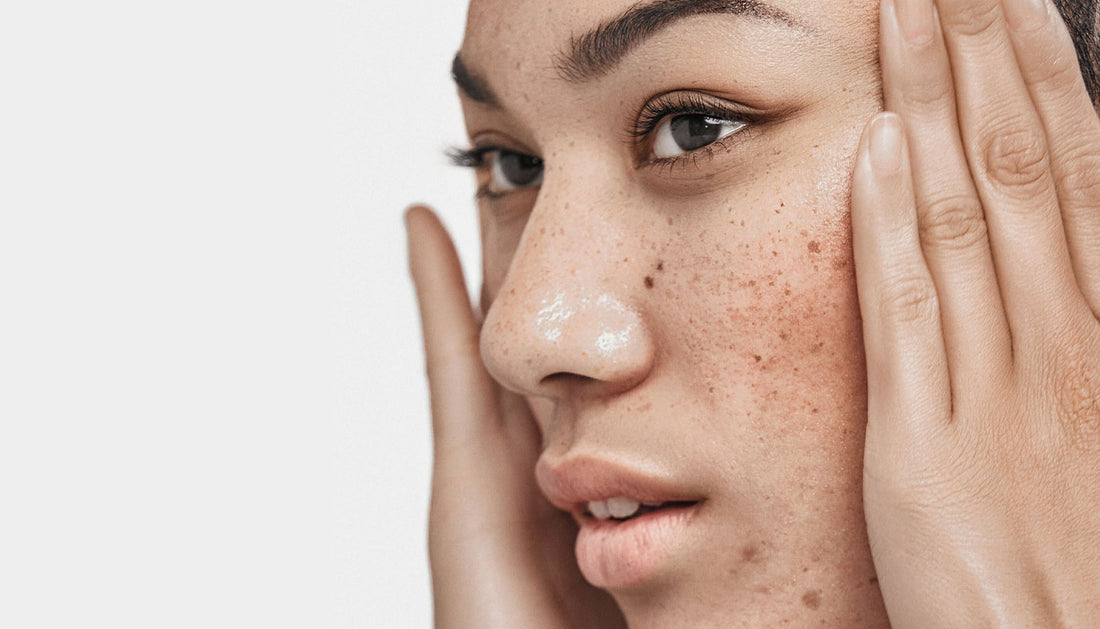Are you stressed?
Are you currently experiencing stress? That can sometimes be hard to define as stress is a personal thing. What stresses one person may not bother another. So how do we define stress? Stress is a feeling of emotional or physical tension. It can come from any event or thought that makes you feel frustrated, angry, or nervous. Stress is your body's reaction to a challenge or demand. In short bursts, stress can be positive, such as when it helps you avoid danger or meet a deadline. But when stress lasts for a long time, it may harm your health.
How stress influences skin health
Our skin is a sensitive organ, it responds to our external environment and our internal health. Think about how your skin responds to your thoughts and emotions. When you’re embarrassed, you blush, or your skin goes clammy when nervous or you get goose bumps when scared. This is evidence of your skin responding to your ‘stress’ responses and how you are feeling emotionally.
When we experience chronic, continual stress there’s an increase in hormones that directly impact the skin. We experience an increase in breakout activity, hyperpigmentation, sensitivity and premature skin ageing. If you have an inflammatory skin condition such as eczema, psoriasis or rosacea, you’ll likely experience flare ups during periods of stress. Let’s discuss why this happens.
Stress and breakouts
Stress related hormones such as cortisol and adrenal androgens send sebaceous glands into overdrive. These are the glands that produce sebum (oil) within the pores. This excess sebum mixes with dead skin cells and C. acnes (spot causing bacteria) leading to clogged pores and breakout development. The primary factor leading to adult acne is chronic stress. The increase in hormone levels over a long period of time can lead to persistent low-grade acne.
Do you find your stress breakouts hang around for weeks? Psychological stress can slow wound healing by up to 40%, which could be a factor in slowing the repair of acne lesions, along with the slower reparative capacity in older adults. Incorporate breakout clearing formulas designed for adult skin that address dehydration and skin sensitivity as well as clearing breakouts.
Product pick for stress induced breakouts – AgeBright Clearing Serum
Stress and sensitive skin
While the reasons we experience stress are varied, the skin response will be directly related to the brain and its chemical changes during stress. The nervous system, which is controlled by the brain, triggers what we call neurogenic inflammation by releasing neuropeptides that result in an inflammatory cascade of events. We see blood vessel dilation and secretion of histamine leading to the hallmarks of inflammation such as redness, welts, flare-ups and itchiness.
You may find during periods of stress your skin is more intolerant to your environment and products you use regularly may smart or sting. Simplify your at-home regimen, sticking to the basics and avoid anything too active such as hydroxy acids. Introduce products to calm and soothe the skin and fortify the protective barrier to reduce negative skin responses.
Product pick for stress induced skin sensitivity – UltraCalming Serum Concentrate
Stress and pigmentation
Chronic, long-term stress can manifest on the skin as hyperpigmentation. A hormone called Adrenocorticotropic hormone (ACTH) is produced and secreted by the anterior pituitary gland, often in response to biological stress. This hormone triggers melanogenesis, the process of skin pigment production. It’s also worth noting that increased inflammation in the skin (also triggered by stress) is another trigger for hyperpigmentation.
This type of “stress” pigmentation has a tendency to start on the outer periphery of the face and spread inward. All forms of hyperpigmentation are made worse by UV exposure, so always apply a high level (SPF50) sunscreen daily.
Product pick for stress induced pigmentation – PowerBright Dark Spot Serum
Stress and skin ageing
As discussed, there are multiple negative effects on the skin during periods of prolonged stress. Overall skin health will suffer. High cortisol levels can decrease the skin’s ability to retain water causing it to look dull and feel dehydrated. And remember the reduction in wound healing? This impacts the skin’s ability to renew and repair itself effectively resulting in accumulative damage and premature skin ageing.
Fortify skin recovery and repair by including vitamins and antioxidants in your daily regimen.
Product pick for stress induced skin ageing – BioLumin-C Serum
Stress and sleep
For many of us, when we’re stressed, we do not sleep well. Overnight is the period of time our skin repairs and regenerates, so lack of sleep due to stress is compounding our skin issues. Take steps to relax and unwind before bed. Use your skin care routine as a relaxing, calming moment to aid the transition into a restful state. You can find sleep tips and a binaural beats track to help you drift off at www.soundsleepcocoon.com.
Product pick to aid restful sleep – Sound Sleep Cocoon
Managing stress to improve skin health
Healthy skin requires a 360 approach that includes a consistent daily regimen along with physical and mental health practices for overall health and wellbeing benefits. Find stress reducing techniques that work for you. Daily meditation, yoga or breathing exercises help reduce stress symptoms. As does regular exercise, fresh air and time in nature, playing with your children and taking a nap. Prioritise time for you regularly to achieve calm and balance and if you are struggling with your skin, book a Pro service to target your skin concerns and benefit from the rest and relaxation the treatment will also offer.
Book a Pro Skin service with your local Dermalogica Expert here or chat live with one of our Professional Skin Therapists now.




